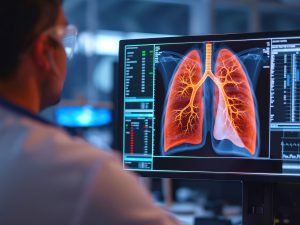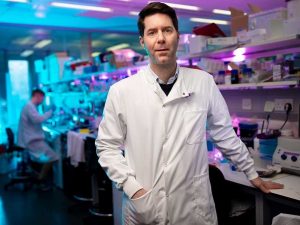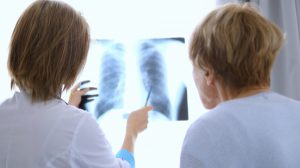
Medical technology company Prothea Technologies, a spinout of the universities of Edinburgh and Bath, has announced the enrolment of the first patient in a Precision Lung clinical trial.
Up to 40 patients will be recruited at the Royal Infirmary of Edinburgh, where the study will evaluate Prothea’s novel bronchoscopy system in patients requiring a biopsy who have had abnormal lung lesions in their CT scan.
Prothea launched in April 2024, with a €12 million investment for its technologies that promise to ‘see and treat’ lung cancer in the same hospital visit.
Lung cancer is the third most common cancer in the UK, with more than 48,000 new cases diagnosed per year. Nine in 10 patients do not survive more than 10 years, with survival rates remaining stubbornly low for the last five decades.
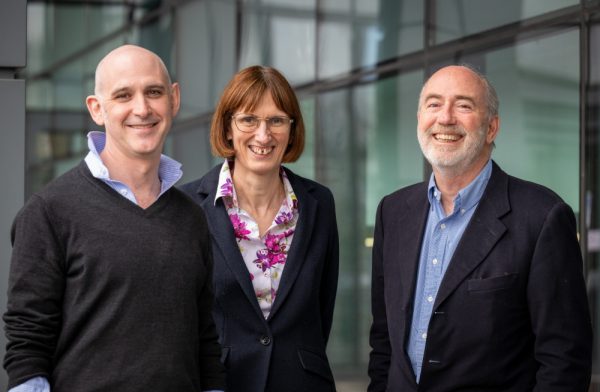
Screening programmes aim to facilitate the early detection of suspicious lesions, but delivering value from these initiatives requires a significant increase in biopsy performance, presenting a challenge for hospitals already grappling with low biopsy yields and false negatives.
The study, co-sponsored by ACCORD, the joint research office between the University of Edinburgh and NHS Lothian, aims to evaluate safety and procedural success of the bronchoscopy system, as well as biopsy yield.
The technology combines innovative microscopic optical fibres, next generation fluorescence imaging and biopsy instruments to deliver adjacent image capture of overlapping regions and molecular tissue detail.
This approach has been designed to differentiate normal from abnormal tissue in vivo, to ensure that the biopsy sample is sufficient - whether for diagnostic purposes or for obtaining the molecular data essential for guiding gold-standard therapies.
The anonymised imaging datasets will be analysed with automated image analysis algorithms developed during the study and incorporated in future software upgrades, to improve biopsy accuracy.
Dr Adam Marshall, Principal Investigator in the Precision Lung clinical investigation and Consultant Physician in Respiratory Medicine at NHS Lothian, said:
Despite the introduction of many new technologies in recent years there are still patients around the world whose biopsies don’t provide sufficient tissue for the pathology they require. This novel technology clearly offers something different and I hope that this study will prove to be a satisfactory basis for further clinical investigations. ”
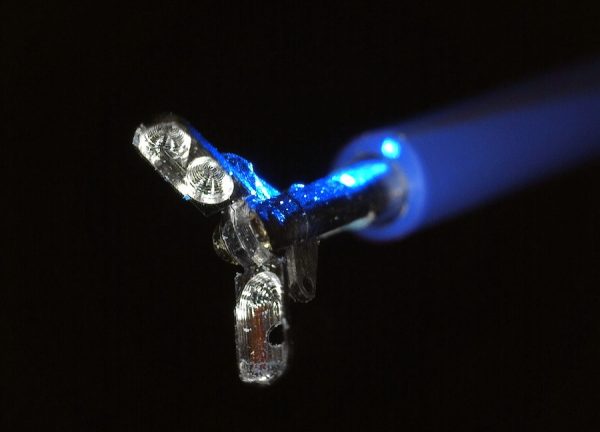
Professor Kev Dhaliwal, co-founder and Chief Science and Medical Officer of Prothea and Chair of Molecular Imaging and Healthcare Technology at the University of Edinburgh’s Institute for Regeneration and Repair, said:
We are also developing a laser ablation catheter for the treatment of lesions immediately following visualisation and biopsy.
We hope that the integration of these two systems (real-time imaging and ablation) will streamline biopsy and treatment into a single hospital visit, reducing time-to-treat from weeks to minutes, thereby relieving hospital pressures and improving patient outcomes. ”
Dr Susan Bodie, Director of Innovation Development and Licensing at Edinburgh Innovations, the University’s commercialisation service, said:
Prothea’s innovative technologies, emerging from a longstanding, ambitious collaboration between the Universities of Edinburgh, Bath, Dundee and Durham, alongside NHS Lothian and Heriot Watt University, offer real promise to lung cancer patients, whose survival rates remain stubbornly low.
We are extremely pleased to continue supporting the team, including through Old College Capital, our in-house venture investment team, as they take these technologies to patients in this first, exploratory study. ”
